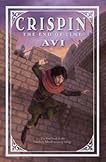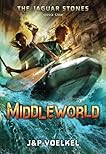from The Telegraph accessed 11/30/09
Novels of the year
Lorna Bradbury delves into the best of a notably fine year for fiction, including Hilary Mantel's Booker-winning Wolf Hall, Philip Roth's latest, The Humbling; Sebastian Faulks, Thomas Pynchon, Sarah Waters and A S Byatt also feature.
By Lorna Bradbury
Published: 6:30AM GMT 28 Nov 2009
In a notably strong year for literary fiction, it is striking how many novels have had an eye on the past. Sebastian Barry’s The Secret Scripture (Faber, £7.99), a novel haunted by modern Irish history, won the Costa Book of the Year; Marilynne Robinson’s Home (Virago, £7.99), set in Fifties America but harking back to the events of a century earlier, won the Orange Prize; and the Nobel Prize for Literature was awarded to Herta Müller for her novels about Romanian history. Never has the state of the nation novel – though we have had those, too, in Sebastian Faulks’s occasionally sharp A Week in December (Hutchinson, £18.99) and Amanda Craig’s compassionate Hearts and Minds (Little, Brown, £12.99) – seemed so out of place.
But the novel that has dominated the year is Hilary Mantel’s magnificent Man Booker prize-winning Wolf Hall (Fourth Estate, £18.99), which turned Tudor history on its head by recasting Thomas Cromwell as the hero, and was every bit as good as it promised, delivering a vibrant portrait of the hitherto demonised enforcer who rose from bloodstained origins to serve in the court of Henry VIII. Though rooted in historical research and true to its times, the triumph of the novel is its modern sensibility which keeps it just the right side of pastiche.
In an overwhelmingly historical Booker shortlist, Sarah Waters’s The Little Stranger (Virago, £16.99), a chilling ghost story set in a decaying country mansion in the aftermath of the Second World War, stands out, as does A S Byatt’s The Children’s Book (Chatto & Windus, £18.99), which matches her Possession in its marriage of erudition and sheer readability. Based in part on the lives of the children’s writer E Nesbit and the sculptor Eric Gill, it follows a group of Arts and Crafts families at the turn of the century and shows up the dark side of creativity as well as the terrible carnage of a generation wiped out by the First World War.
This has also been the year of the octogenarian novel, with a clutch of writers producing books up there with their best work. William Trevor’s Love and Summer (Viking, £18.99), a portrait of a doomed love affair in Fifties Ireland, is driven, as ever, by the forces of shame, regret and quiet desperation – and is quite the most moving novel I have read this year. Anita Brookner’s Strangers (Fig Tree, £16.99) is similarly caught up with the past and, like Trevor, Brookner succeeds brilliantly in fashioning a somehow uplifting story out of the debris of human failings. This impressive novel, her 24th, examines a distinctly solitary life – as Brookner’s fans have come to expect – and portrays the twilight of a life with wit and compassion.
Jane Gardam has delighted readers of Old Filth by returning again (after having done so several years ago in a short story, “The People of Privilege Hill”) to the judge Edward Feathers (Filth) in The Man in the Wooden Hat (Chatto & Windus, £14.99). She tells the story this time from the point of view of Filth’s wife, Betty, previously glimpsed only through her husband’s memories, and the result is captivating. If Colm Tóibín’s Brooklyn (Viking, £17.99) was one of several startling omissions from the Booker shortlist, it was baffling that The Man in the Wooden Hat didn’t make it even as far as the longlist.
Further afield, there have been fine novels from Lorrie Moore (A Gate at the Stairs, Faber, £16.99), Margaret Atwood (The Year of the Flood, Bloomsbury, £18.99) and Thomas Pynchon (Inherent Vice, Jonathan Cape, £18.99). And the South African novelist J M Coetzee produced the final volume in his trio of fictionalised memoirs, Summertime (Harvill Secker, £17.99). If the first two books, Boyhood and Youth, were relatively straightforward accounts of Coetzee’s early years, this is a much more artful exercise that takes the form of a series of imagined interviews between an English academic writing Coetzee’s biography and a series of people who knew the great novelist in the early Seventies. It is a sly account of the impossibility of the biographer’s art in which Coetzee emerges, in an extraordinarily self-lacerating portrait, as a lacklustre writer and a failed seducer.
At the other end of the seduction spectrum, the great actor hero of Philip Roth’s The Humbling (Jonathan Cape, 12.99) is wildly successful between the sheets. Though elderly and dejected after the disintegration of his acting career, he manages to bed not just a young lesbian but to initiate a threesome with a woman he picks up in a bar. This is every ageing lothario’s fantasy, and well deserves its place on the Bad Sex Award shortlist, but it is redeemed by moments of exquisite writing. A more surprising inclusion for the prize is Jonathan Littell’s The Kindly Ones (Chatto & Windus, £20, tr by Charlotte Mandell), an epic novel written in French by an American Jew in which the Holocaust is retold through the eyes of one of its perpetrators.
The final flourish of excitement this year was with the publication of Vladimir Nabokov’s ultimately disappointing The Original of Laura: a Novel in Fragments (Penguin, £25), the unfinished last offering from the great stylist which has languished in a Swiss vault since his death. But there have been other more fulfilling literary discoveries on offer. The reinvention of the Chilean novelist Roberto Bolaño, whose books have sold in vast numbers since his death in 2003, gathered pace with the publication in English of his final work, 2666 (Picador, £8.99, tr by Natasha Wimmer), as well as Amulet (Picador, £14.99, tr by Chris Andrews).
Similarly, numerous novels by the Austrian writer Stefan Zweig, who committed suicide in a pact with his second wife in Brazil in 1942, were brought back into print, including a new translation of The Post Office Girl (Sort Of Books, £7.99, tr by Joel Rotenberg) and his memoir The World of Yesterday (Pushkin Press, £20, tr by Anthea Bell). And Suite Francaise (2006), the unfinished sequence of novels by Irène Némirovsky, the French-Russian novelist killed in the Holocaust, was succeeded by the translation of another of her books, The Dogs and the Wolves (Chatto & Windus, £16.99, tr by Sandra Smith). A biography by Olivier Philipponnat and Patrick Lienhardt follows in the spring.
In short stories, Alice Munro’s Too Much Happiness (Chatto & Windus, £17.99) and A L Kennedy’s What Becomes (Jonathan Cape, £16.99) were unsurpassed. Two reworkings of great poets stand out: Rupert Brooke in Jill Dawson’s The Great Lover (Sceptre, £7.99) and John Clare in Adam Foulds’s The Quickening Maze (Jonathan Cape, £12.99).
And at the lighter end of things I recommend the latest volume of Sue Townsend’s Adrian Mole diaries, The Prostrate Years (Michael Joseph, £18.99), Elinor Lipman’s The Family Man (Headline, £19.99) and Audrey Niffenegger’s Her Fearful Symmetry (Jonathan Cape, £18.99).
Subscribe to:
Post Comments (Atom)































No comments:
Post a Comment